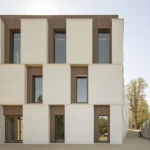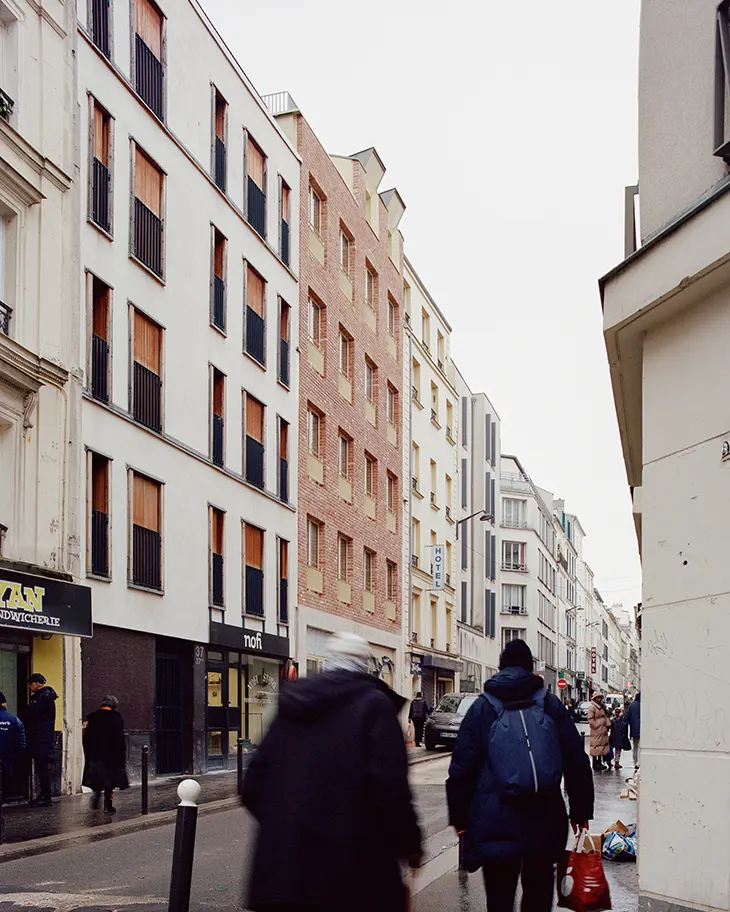
FUSO introduces a new standard for sustainable urban living with its public housing project at 39 Rue Myrha in Paris’s La Goutte d’Or district.
RESIDENTIAL
Designed with LM engineers, the building is the first in the city to combine a wooden structure with reused brick facades, reflecting the firm’s commitment to ecological construction and adaptive architecture in response to climate realities.
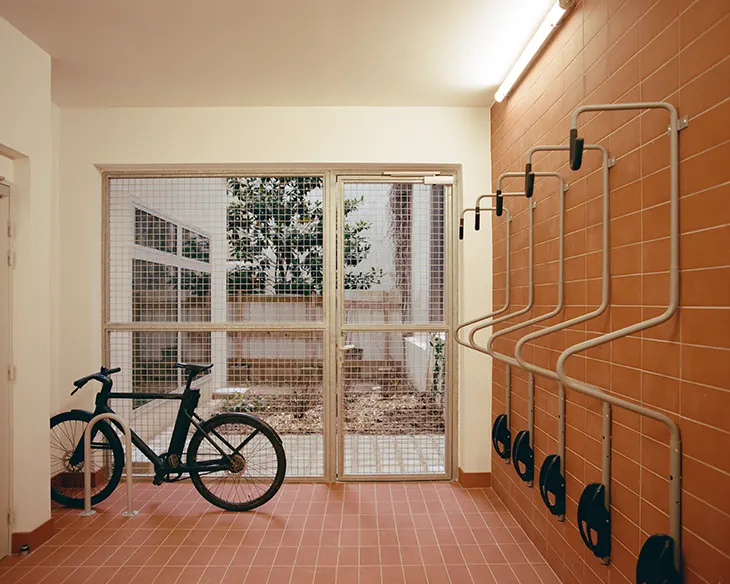
Set between the historic Haussmann buildings and the modest fore-town architecture of the 18th arrondissement, the project bridges two Parisian identities. It integrates the density, durability, and elegance of Haussmann structures with the rational construction methods of worker housing. The result is a compact, energy-efficient building that respects its context while introducing a new language of sustainable design.
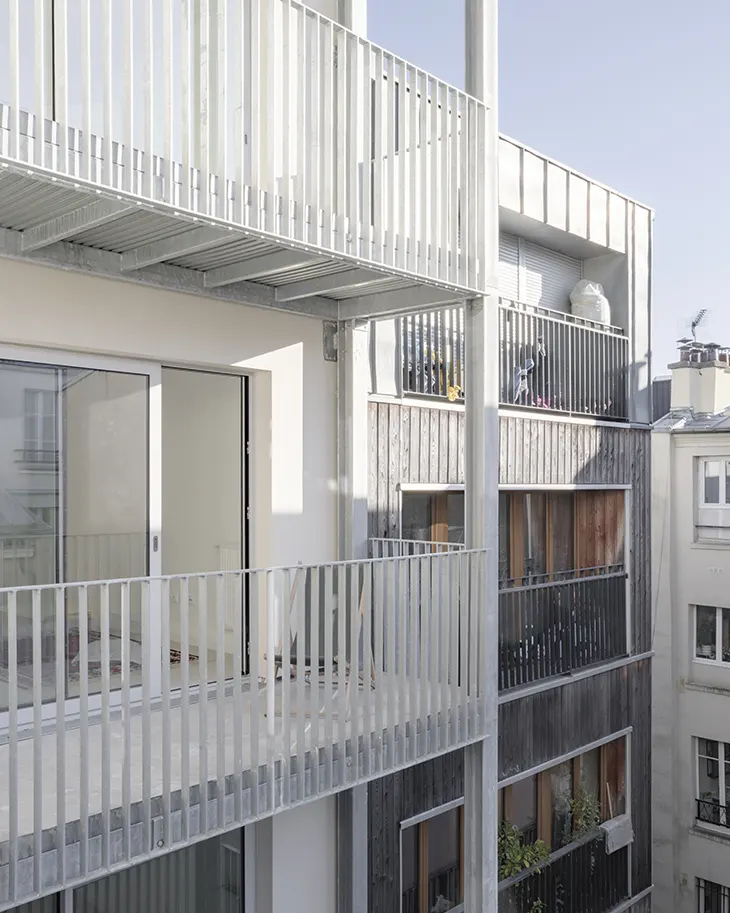
Constructed without cranes due to the narrowness of Myrha Street, the six-level structure uses prefabricated wooden panels lifted into place by light machinery. This approach reduces emissions, avoids concrete foundations unsuited to the site’s fragile subsoil, and accelerates assembly. The full wooden frame, from the ground floor to the top, lightens the building’s footprint while creating a warmer, healthier living environment.
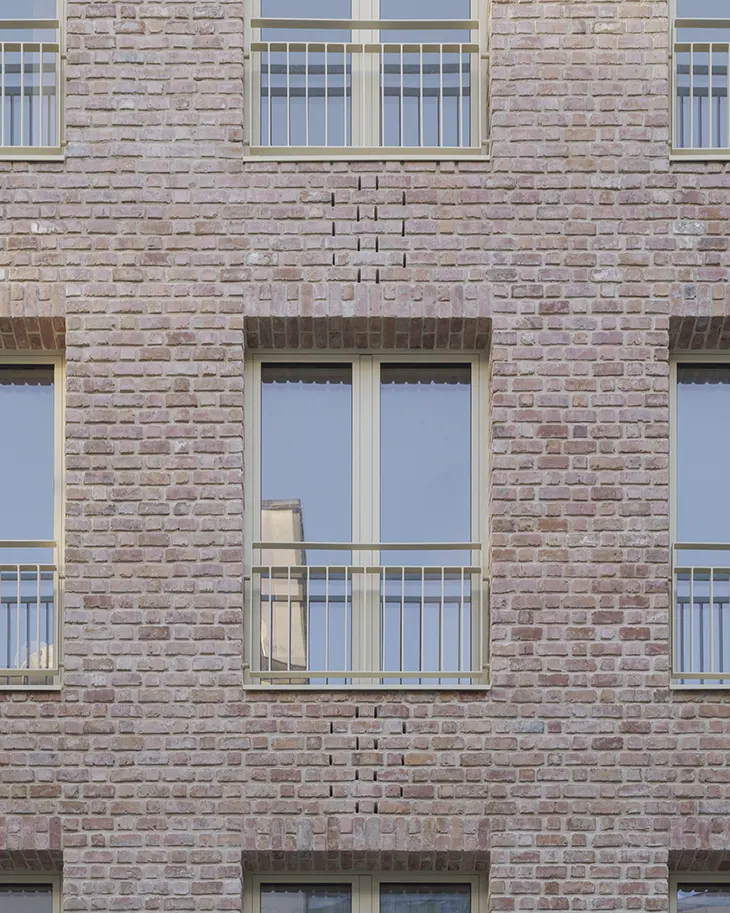
At the core of FUSO’s design is the “active façade,” a concept that gives the project its distinct identity. Built from repurposed Belgian bricks, the north-facing façade incorporates an air gap that recovers waste heat to preheat ventilation air. This passive system circulates naturally, reducing energy demand while maintaining a stable indoor temperature. The façade’s generous depth accommodates built-in functions, from seating and storage to work surfaces bathed in natural light, turning the building envelope into a lived-in space.
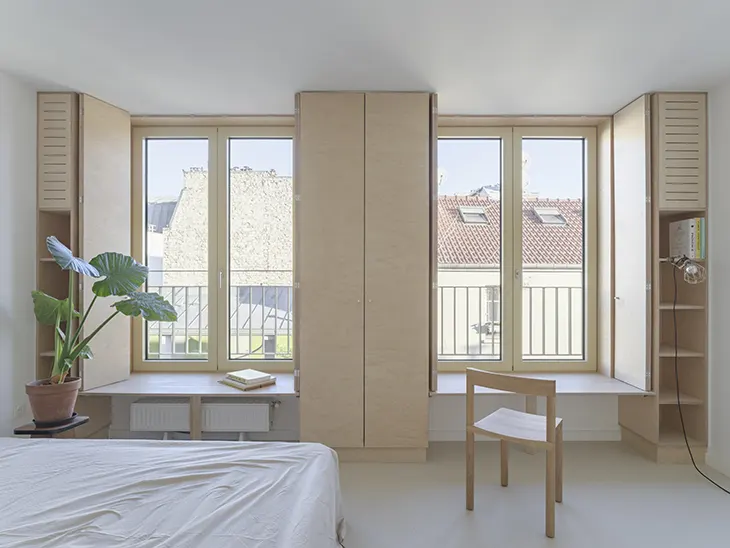
Beyond its technical innovation, the project reimagines the social and domestic value of housing in dense urban contexts. Its design transforms functional systems into elements of comfort and beauty, creating adaptable environments that support everyday life. Through this dual ambition, technical efficiency and human experience, FUSO affirms that sustainable architecture can be both performative and poetic.
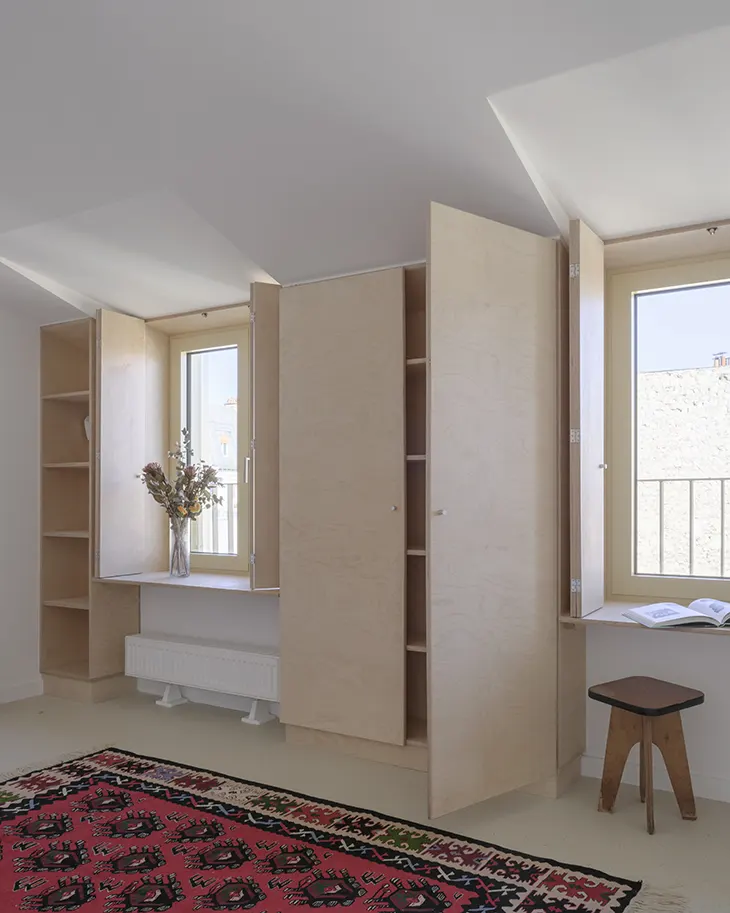
Founded in 2013 by Daniel Garcia, Jérôme Balas, and Ghislain Grotti, FUSO approaches architecture as a form of climate activism grounded in material intelligence and urban empathy. The firm’s work on Rue Myrha exemplifies this vision: a housing model that responds to ecological urgency, revives forgotten building techniques, and redefines what public housing can achieve in the city of Paris.



